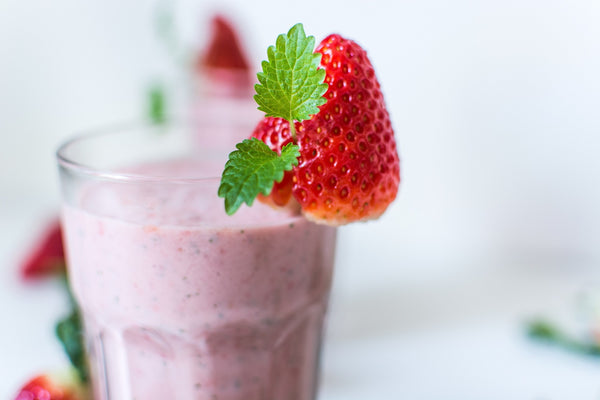3 Diet Trends that Won’t Help You Lose Weight, Be Healthier

The rise and fall of trends in the fitness industry is like the passing of the seasons. Each year, some new diet or fad explodes all over the news and social media promising big results in a short amount of time.
Sure, there have been a few trends that deliver on their promises but for the most part, these fads do nothing for your long-term results except rubber-band you back to your original weight.
Let’s take a look at the 3 diet trends that you may be using that won’t help you lose weight or improve your wellness. We’ll also follow-up with a healthier and more effective alternative.

Brand-Focused Processed Food Diets
First up on the list are the diets that are based around a product line that may encompass frozen food meals, canned goods, and shelf stable entrees.
To give you an example: Whenever you visit your local grocery store, you may have noticed there are entrees and snacks that share the same logo throughout the store. These foods are a part of a complete product line of meals that you can buy to supposedly support your weight loss goals.
The reality is that these product line processed food diets, despite their claims of success, will do nothing for you in the long term.
From an economic standpoint, you are spending a great deal of money on foods that are heavily processed. For a fraction of the cost of a complete product line diet, you can purchase nutritious whole foods and prepare your own meals for the week.
Second, these processed foods need to be able to sit on a shelf or in a freezer for an extended period of time. The way to make that possible is with preservatives. Take a look at the sodium content on a processed food diet meal. Just one meal will contain the amount of sodium you need for the day.
Now, don’t get me wrong, natural sodium like you find in pink Himalayan salt is healthy and necessary. Processed sodium like you’ll find in all of those brand-focused processed foods is a big problem, especially if you have issues with high blood pressure.
What’s more, these artificial additives may be trouble in the long run as studies suggest artificial sweeteners and preservatives are linked with certain illnesses and diseases such as diabetes. (1)
Lastly, these processed foods may provide you with protein, carbohydrates, and fats but they lack real nutrition. Vitamin and minerals are usually artificially added and the quality of the macronutrients within are questionable at best
What to Do Instead:
- Save money and purchase whole foods
- Do long term meal prep to save time
- Supplementing with an occasional frozen or shelf-stable meal is okay but the majority of your diet needs to be whole-food based

Supplement-Based Diets
Next up are supplement-based diets. Supplements can be an important part of any diet and exercise plan… within reason. The name itself tells you the role that supplements need to play: they should supplement your diet, not be the main focus.
Still, many companies promote a diet based around their products. Whether it’s drinkable cleanses or snacks for your day that supposedly contain all of your daily nutrition, supplement-based diets defeat the purpose of an actual diet.
Your body runs best on whole food-based nutrients. Supplements contain synthetic vitamins and minerals that your body has trouble processing and utilizing. This is why the amount of certain nutrients are off that charts. Take a look at the back of a multi-vitamin. Do you really think you need 1,000% of your recommended daily allowance? Manufacturers do this because your body cannot absorb synthetic nutrients.
Let’s not forget about what science has to say. Studies confirm that taking a multi-vitamin is completely useless for a majority of the population, especially if you strive to eat well on a daily basis. In fact, the overuse of some vitamins has been linked to various forms of cancer. (2)
Aside from not providing you with the nutrition you need and can actually use, supplement-based diets hook the consumer to be dependent upon their products.
If, and that’s a big IF, you see results, you’ll be hooked into thinking that you need to buy that supplement to continue seeing those results. Not only is this diet bad for your health, it is terrible for your mental well-being and wallet.
What to Do Instead:
- Follow a diet based on whole foods
- Do long term meal prep to save time
- Supplements can play an important role in your diet but they should never be the focus - Your body needs real nutrition – Not artificial nutrients from a bottle

Liquid Only Diets
The rise in popularity with juicing may have led consumers on a slippery slope that resulted in liquid-based diets.
It’s important to note that your digestive system certainly appreciates a break from time to time. You can provide that break by fasting and having a day, once in a while, where you consume primarily liquid nutrition. The benefits include alleviation of gastric distress and better overall digestion. The problem comes in when people toss out solid foods in place of liquids.
First, you are working against everything your body was built to do. You were built to chew crunchy things and eat solid foods. Your teeth love chewing on broccoli, almonds, and apples. It keeps them strong and it ensures your digestive system is doing its job.
Second, liquid-based diets rarely provide the calories and macronutrients you need. Do you know how much you’d have to drink to equal a nutritious diet based around whole foods? Trust me when I say, it’s a lot and more than you would want.
There is one macronutrient that liquid-based diets are great at providing and that’s simple carbohydrates in the form of sugar. Many of the liquid-based products and recipes taste horrible on their own and so sugar is pumped in to ensure you enjoy that greens-only juice.
Now, let’s talk about the rebound effect with this type of diet. Studies show that subjects who consumed a liquid-based diet ate significantly more when returning to solid whole foods. This isn’t hard to figure out. Liquid meals digest quickly and rarely provide the protein and healthy fats you need to feel satiated. Sure, they have carbohydrates but as I mentioned above, they are usually simple carbs that digest quickly and spike blood sugar levels. The result is having hunger pangs that turn you into a ravenous beast who raids the refrigerator. (3)
What to Do Instead:
- Practice a diet that incorporates primarily solid foods and supplements with liquid meals
- When having a liquid meal, make your own
- Focus on recipes that provide a full range of macronutrients without the simple sugars
- Try intermittent fasting if you want to give your digestive system a break
Tell Us What You Think!
Have you tried any of these diets?
What results did you notice?
Do you have a better diet recommendation for the readers?
Let us know in the comments below!
References
- Strawbridge, Holly. "Artificial Sweeteners: Sugar-free, but at What Cost?" Harvard Health Blog. N.p., 12 Dec. 2016. Web. 26 June 2017.
- Kamangar, Farin, and Ashkan Emadi. "Vitamin and Mineral Supplements: Do We Really Need Them?" International Journal of Preventive Medicine. Medknow Publications & Media Pvt Ltd, Mar. 2012. Web. 26 June 2017.
-
Stull, April J., John W. Apolzan, Anna E. Thalacker-Mercer, Heidi B. Iglay, and Wayne W. Campbell. "Liquid and Solid Meal Replacement Products Differentially Affect Postprandial Appetite and Food Intake in Older Adults." Journal of the American Dietetic Association. U.S. National Library of Medicine, July 2008. Web. 26 June 2017.
0 comments











